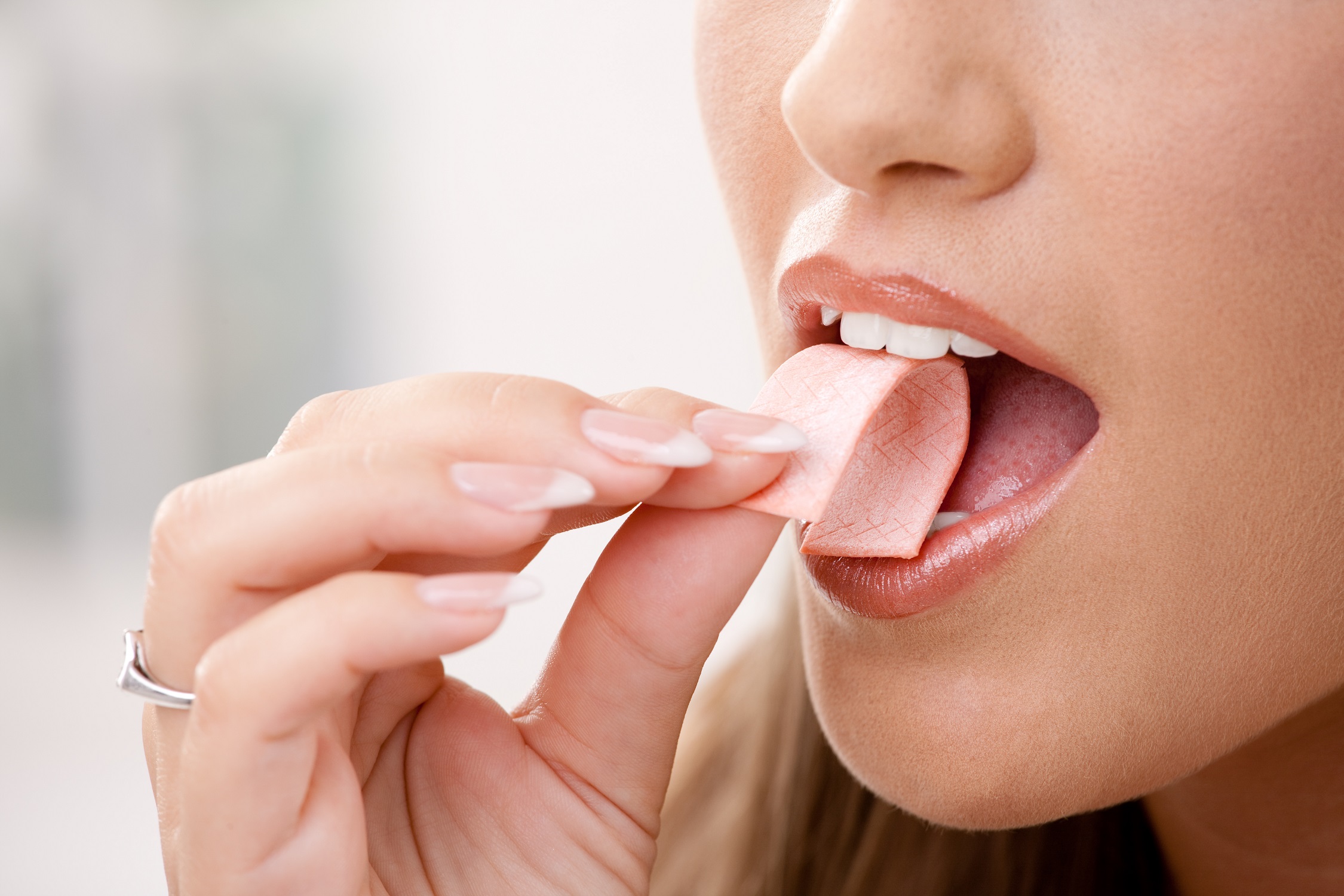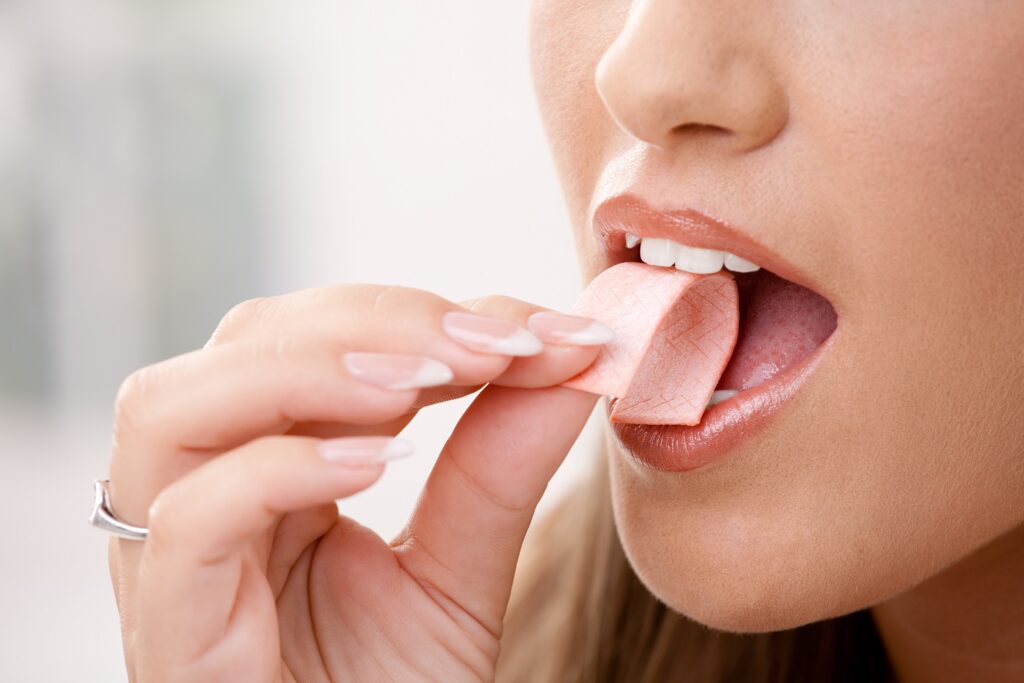
24 Mar Is Chewing Gum Safe For Your Teeth?
 Chewing gum was found over 9000 years ago in ancient European and Native American cultures. Today, over 160 million Americans enjoy bubble gum and chewing gum, with a U.S. market that has grown to $8.1 billion dollars in annual sales. What’s so great about chewing gum and is it safe for your teeth?
Chewing gum was found over 9000 years ago in ancient European and Native American cultures. Today, over 160 million Americans enjoy bubble gum and chewing gum, with a U.S. market that has grown to $8.1 billion dollars in annual sales. What’s so great about chewing gum and is it safe for your teeth?
The Benefits of Chewing Gum
The American Dental Association recognizes that sugar-free chewing gum may offer a range of benefits:
Cleans Teeth – Chewing sugar-free gum for 20 minutes after meals helps to remove bacteria from teeth, with some evidence pointing to a reduction in dental cavity risk. However, chewing gum is not a substitute for twice-daily brushing, but should be considered an additional measure to keep teeth clean.
Increases Saliva – When dry mouth is making you uncomfortable, pop in a piece of gum. The action of chewing gum causes your jaw to push on and stimulate your salivary glands to make more saliva.
Freshens Breath – Certain foods such as coffee, garlic, onions, and tobacco use can cause bad breath. Minted gums can help combat odors and provide temporary relief until you’re able to brush. If you experience persistent bad breath, contact your dentist to rule out potential health issues.
Prevents Snacking – Craving a little snack or some sugar for an afternoon pick-me-up. Choose sugar-free gum in fruity flavors to satisfy cravings and prevent unnecessary eating.
Whitens Teeth – Consuming various foods including teas, wine, dark sodas, as well as dark-colored fruits, and acidic foods can stain the tooth’s outer enamel. Chewing gum with whitening properties may help whiten teeth, and also generates saliva to help wash away foods particles that may stain.
Potential Problems of Chewing Gum
Full Sugar Gum – Consuming sugar in any form contributes to the development of dental caries. Full sugar gums contain sucrose which interacts with bacteria in your mouth to produce acid that wears down enamel. Always opt for sugar-free options.
Temporomandibular Joint Disorder (TMJ) – TMJ is like a hinge that connects your jawbone to your skull. Persons with TMJ can experience jaw discomfort, difficulty chewing, clicking, and locking of the jaw. Excessive chewing of gum can cause jaw joints to weaken or become inflamed. If you experience jaw pain, consult your dentist.
Irritable Bowel Syndrome – Think of it as “ose”. Full sugar gums may contain glucose, fructose, galactose, sucrose, maltose, or lactose. Known as sugar alcohols, they may cause an intestinal upset as our bodies are missing certain enzymes that help with the digestion of any type of sugar including sugar alcohols.
Forgoing Brushing – Nice try but chewing gum does not replace twice daily brushing. Chew gum in addition to maintaining your regular brushing routine and twice-annual visits to the dentist.
What Kind of Gums are Accepted by the ADA
The American Dental Association Seal of Acceptance means that a product has been objectively evaluated for safety and efficacy by an independent body of scientific experts, the ADA Council on Scientific Affairs. Only sugar-free gums are considered for the ADA Seal of Acceptance. Look for the ADA logo when choosing gum.
At Imperial Dental Center, we want you to enjoy the foods you eat every day including a special treat like chewing gum with just a few guidelines. Contact us today at (281) 265-3567 or schedule an online appointment to discuss any dental concerns you may have.

Dr. Dragana Angelova
We Love to See You Smile

